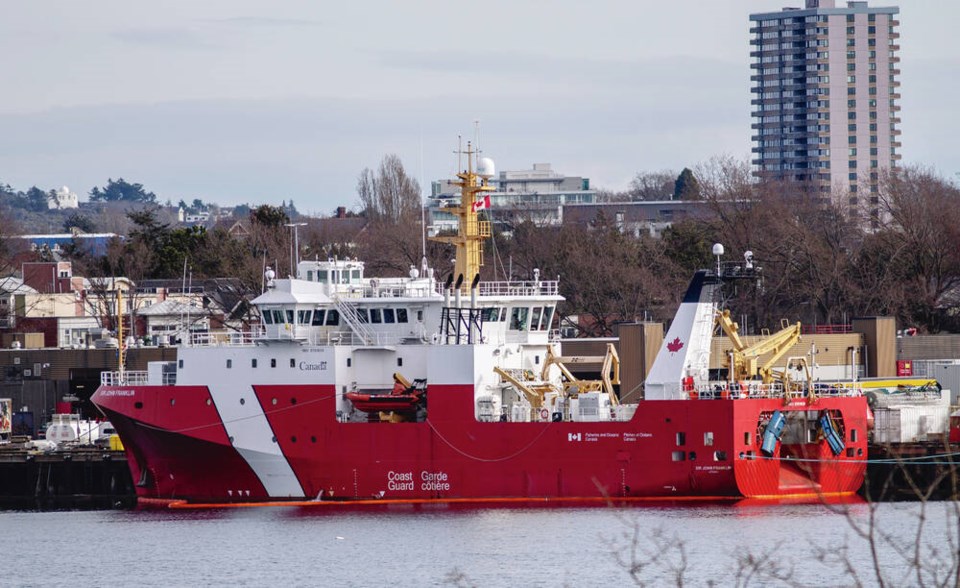An international expedition to study salmon in the Gulf of Alaska lost its Russian vessel part-way through the venture as a result of sanctions in the wake of the invasion of Ukraine.
The chartered Russian vessel R/V Tinro had to turn back after it was not allowed to fuel up in Dutch Harbour in the Aleutian Islands in Alaska.
The ship was among four vessels carrying about 60 scientists that headed out in February for a month to the North Pacific Ocean on the largest-ever pan-Pacific research expedition to study salmon.
The team included the Canadian Coast Guard vessel Sir John Franklin, which left from Victoria, the chartered fishing vessel Raw Spirit from Port Alberni, a U.S. vessel and the R/V Tinro. The Franklin recently returned to the coast guard base in James Bay.
Russia has carried out salmon surveys for decades and was very involved in planning the expedition, said Mark Saunders, who is with the North Pacific Anadromous Fish Commission serving as the director for the north Pacific region for the International Year of the Salmon. The expedition was supported by governments, the private sector, academia and fisheries-related organizations.
Researchers are seeking to understand how salmon survive in the high seas as the climate changes. Salmon were caught and studied by scientists who looked at factors such as their location, numbers, size and condition, and prey species.
Canada is involved because salmon returns in B.C. have dropped significantly in recent years.
The Tinro, which sailed from Vladivostok, initially fuelled up at Dutch Harbour but was not permitted to do so again, Saunders said.
Without more fuel, the Tinro was unable to complete its work, doing about half as much as initially planned, he said. Each vessel had designated areas to survey.
Russia covered the costs of the scientists it sent on the expedition.
The Tinro was chartered for $2.1 million, with expedition supporters, including Canada, covering the cost. Because not all funds were used due to its shortened end date, Saunders is working on lining up another vessel to complete the survey.
When the four vessels were in the North Pacific, they shared daily findings, said Saunders, who doesn’t know if that will continue.
Despite the Russian ship’s curtailed efforts, Saunders said the expedition was a success. “We’ve got some tremendous results in terms of catches,” he said. “I think this is going to give us what we need to plan going forward.”
The goal is to develop a “full-blown ocean science intelligence system,” using additional technology to collect data, he said.
Saunders remains committed to the idea of international scientific collaboration, saying that’s what is needed to ultimately understand the ocean.
“We have demonstrated that there is a lot to be gained by working together.”



